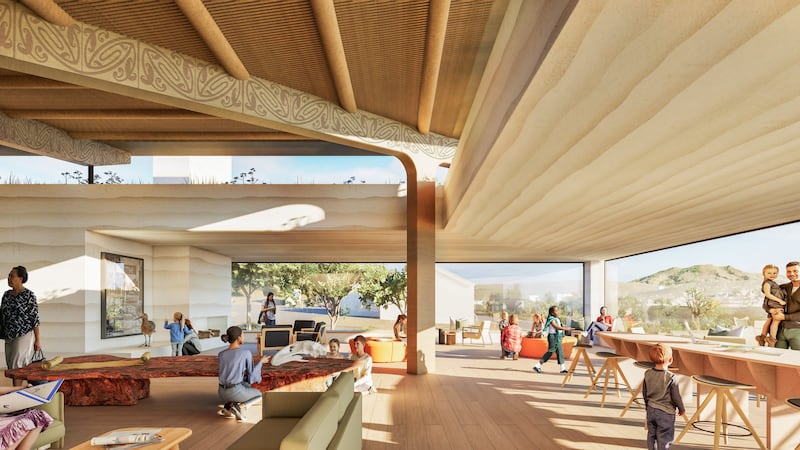A government directive to councils to get back to delivering the basics has cast a shadow over plans for a flagship community hub in the Ruapehu district.
In August, Ruapehu District Council and iwi collective Te Korowai o Wainuiārua revealed design concepts for a joint proposal to build a $10 million shared community facility in the town of Raetihi, home to just over 1000 people.
The 700m² facility would house a council service centre, iwi headquarters, a library and computer hub, exhibitions and multi-functional community spaces.
Ruapehu mayor Weston Kirton said the government’s views could put the Raetihi hub proposal at risk.
“Our intentions and desires could be roadblocked. We could well struggle to get it over the line because of the Government putting roadblocks on what they term as pet projects.”
In a blunt speech to representatives of about 70 councils last month, Prime Minister Christopher Luxon criticised Wellington City Council’s $180m spend on the Tākina convention centre, which was reportedly losing money.
“It looks very nice, and it’s very nice that politicians like us have another expensive room to deliver speeches in, but can anyone seriously say it was the right financial decision or the highest priority for Wellington given all of its challenges?” Luxon asked.
“Ratepayers are sick of the white elephants and non-delivery. Rein in the fantasies and get back to delivering the basics,” he said.
The Government would investigate options to limit council spending on “nice-to-haves”, Luxon said.
The warning came on the same day Winstone Pulp International (WPI) revealed plans to close its mills at Karioi and Tangiwai with the loss of more than 200 local jobs.
Local iwi Ngāti Rangi last week said 25% of WPI workers live in Raetihi. Mill workers have said many people will have to move out of the area to find new work.
Kirton said the WPI closure added “another dimension” to concerns for the Raetihi proposal.
“When you weigh it all up, it’s going to be a worry. We will have to work hard to justify it.”
However, there were solid reasons to build the Raetihi facility. “What we’re talking about is a multi-agency building – a council service centre to replace the existing ageing facility, potentially some presence from the Ministry of Justice to enable court sittings, and joining up with [local iwi] Uenuku and others.”

The Police and social agencies had also requested space in the new building. The council has earmarked $3 million in its 2024-2034 Long Term Plan for the building, which is expected to cost between $7m and $10m.
Kirton said the rest of the money would need to be sourced externally.
Te Korowai o Wainuiārua, which represents the three iwi Uenuku, Tamakana and Tamahaki, has offered the land for the community hub as a lease arrangement. Council executive manager community and economic development Pauline Welch said the project had been seven years in the making.
The proposed hub was still several years away from becoming a reality and depended on funding from partners and external public funding sources such as Lotto.
“It was never intended that ratepayers would shoulder the entire cost,” Welch said. “The project is designed to replace the ageing council library and service centre, which are both in need of significant upgrades or replacement.
“The hub would bring together a range of essential services under one roof … creating a modern, integrated facility to serve Raetihi for years to come.”
Welch urged the community earlier this month to look past the cost and focus on other aspects of the project.
“We urge people to look beyond the immediate challenges and consider the long-term benefits the hub could bring. It is more than just a building – it represents a vibrant, connected space that will enhance community wellbeing, support growth, and build resilience.”
LDR is local body journalism co-funded by RNZ and NZ On Air




